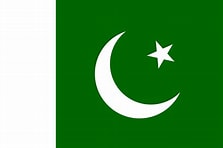Indonesian President Joko Widodo passed on the G20 baton to Prime Minister Narendra Modi amidst unprecedented challenges in a severely divided world. Widodo may have heaved a sigh of relief as eventually the Communique and Summit Declaration was issued after many deliberations. To his relief, President Vladimir Putin decided not to attend the Summit, and Foreign Minister Sergey Lavrov left early, perhaps having read the writing on the wall as the G7 of the G20 were adamant to not only criticising and condemning Russia for invading Ukraine upfront during their statements but also to insert a strongly worded para to this effect in the Bali Declaration.
Threats of nuclear and strategic weapons strikes and false flag operations, including the most recent missile attack (by design or default eventually proved to be misfired by Kyiv) on Poland, brought the spectre of an accidental World War to the foremost.
Modi’s advice to Putin that “the era of war is over” became a buzzword and figured in the Bali Declaration. All points were ticked that the scores of G20 tributary groups like B20, T20, C 20, R20, Y20, W20 etc., had belaboured under the respective Sherpas for over a year. India’s efforts and back channel diplomacy saved the day for the Indonesian friends and the IIB (Indonesia, India and Brazil ) developing countries Troika going forward.
Indian Sherpa Amitabh Kant said in a LinkedIn message that India, led by PM Modi, displayed a true spirit of international leadership collaboration and consensus building. After meetings around the year had failed, and there was a total deadlock, India worked in partnership with all developing countries and emerging markets to draft the final statement and the preamble to the statement. His job is well cut out for the year ahead as India takes on the Presidency and gets a chance to display its heft, diplomatic acumen and leadership in resolving differences and coming up with solutions to the confronting global challenges that are unlikely to see any amelioration in the near future.
The world is going through unprecedented challenges encompassing economic, global health architecture and pandemic, debt reduction and relief for poorer countries, digital transformation, energy, food and fertiliser crisis due to the adverse impacts of the pandemic and Russia-Ukraine War. Reforms of Bretton Woods institutions like IMF and World Bank, WHO, WTO and other multilateral institutions were underscored.
Likewise, even though an insipid COP27 is going on at Sharm El Shiekh under the Egyptian Presidency, the outcomes may be way below expectations due to the clear divide between the developed and developing world. Even though taken on board, G20 reflects the extension of the same mindset across both multilateral meets.
PM Modi actively participated in all three major sessions — including on health, sustainable energy transition and digital transformation — highlighting India’s stellar efforts and achievements as the Indonesian conference theme of ‘Recover Together, Recover Stronger’ wove through.
Apart from the Bali Declaration, India will tackle various global challenges holistically under the spirited mantra of ‘Vasudhaiv Kutumbakam ‘ or One World, One Family, One Future. At Rome Summit, Modi called for ‘One Earth One Health’ as India reiterated her Vaccine Maitri initiatives. India’s principled quest for peace, dialogue, diplomacy, and respect for UN Charter has acquired her newfound respect as the powers on both sides of the aisle acknowledge, even if begrudgingly.
India has been actively pursuing UN reforms for decades, including that of the Security Council, to reflect the global realities of the 21st Century and not the post-World War II mindset of Victor and vanquished stereotypes. It has also witnessed the imbecility of the UN, especially the UNSC, when superpowers are involved. It seeks to be part of a fairer international order. It is ready to take the responsibility to help reconstruct it despite competing for geopolitical unilateral actions, narratives and geo-economic contestations. But that is taking its own time as none of the P-5 is keen on meaningful reforms holding the international community hostage to their geopolitical ambitions.
There is a growing disenchantment with the functioning of the UN system that, unfortunately, defeats and undermines the interests of the developing world. Hence, India finds G20 and similar organisations better suited to delivering her politico-economic objectives and dealing with other strategic challenges more effectively than the UN, etc. Modi did mention that in his opening remarks while referring to unprecedented global challenges, including the fight against tech-driven terrorism, said: “We should also not hesitate to acknowledge that multilateral institutions such as the UN have been unsuccessful on these issues. And we have all failed to make suitable reforms to them. Therefore, today the world has greater expectations from the G20, and the relevance of our group has become more significant.”
India has become an inalienable part of the G7, while it will also be chairing the SCO (Shanghai Cooperation Organisation) Summit in 2023 and the India Africa Forum Summit, which has been long overdue.
During his remarks at the Summit, Modi further underscored, “I want to assure that India’s G20 presidency will be inclusive, ambitious, decisive, and action-oriented” for ensuring strong sustainable, balanced and inclusive growth. Challenges are many, and so is the Indian resolve to overcome them.
https://www.cnbctv18.com/views/g20-india-pm-narendra-modi-unsc-fair-international-order-presidency-bali-declaration-15214741.htm








